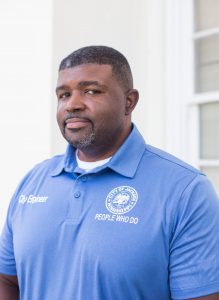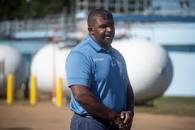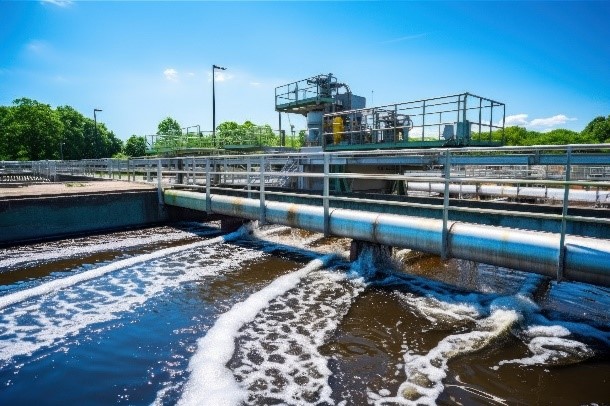 An article written by Charles Williams Jr., PE, PhD
An article written by Charles Williams Jr., PE, PhD
When I graduated from the University of Mississippi with a Bachelor of Science degree in Civil Engineering in August 1996, I never considered becoming a Municipal City Engineer. The opportunity came Spring of 2002 when I received a call from Calvin Dean, PE, who was the manager for the Streets, Bridges and Drainage Division within the City of Jackson’s Department of Public Works. He asked me to consider joining the Public Works Department. I politely declined, thinking municipal government was not for me. He called again about a month later, and I politely declined the offer again. Mr. Dean did not give up; he contacted me a third time, and this time I said yes.
I started as the City of Jackson’s drainage engineer in May 2002. My duties involved maintaining the City’s drainage system. I later became a Senior Civil Engineer, City Engineer, and Director of Public Works all with the City of Jackson. My tenure in each of these roles allowed me to design, manage, and construct vital infrastructure improvements throughout the city. I also learned about fiscal responsibilities for handling local, state, and federal funding resources. In addition, the ability to interact with diverse agency officials led to the creation of a valuable network of professional relationships that I value and nurture to this day.
 I believe my most important role in municipal service was articulating the value of improving vital infrastructure projects to the residents of Jackson. The ability to create relationships built on trust was very important to me. That was not an easy task because Jackson was and still is going through some major infrastructure challenges causing residents to have very little faith in its public officials.
I believe my most important role in municipal service was articulating the value of improving vital infrastructure projects to the residents of Jackson. The ability to create relationships built on trust was very important to me. That was not an easy task because Jackson was and still is going through some major infrastructure challenges causing residents to have very little faith in its public officials.
I grew up in West Jackson and considered it an honor to give back to the community that supported and raised me by using my technical and academic experience to help better it. . The road was not always smooth; it required that I have and develop a very thick skin and a lot of patience. The reward for me was finally seeing infrastructure projects completed and the smiles from the residents who saw their community improved and municipal services enhanced.
 Many urban cities are struggling with multiple infrastructure issues ranging from water, wastewater, bridges, and transportation. The passage of the Bipartisan Infrastructure Deal (Infrastructure Investment and Jobs Act) will provide funding to assist with rebuilding roads, bridges, rail, water, and wastewater infrastructure. All of these are vital to the health, welfare, and security of our cities.
Many urban cities are struggling with multiple infrastructure issues ranging from water, wastewater, bridges, and transportation. The passage of the Bipartisan Infrastructure Deal (Infrastructure Investment and Jobs Act) will provide funding to assist with rebuilding roads, bridges, rail, water, and wastewater infrastructure. All of these are vital to the health, welfare, and security of our cities.
The need for civil engineers will increase nationwide, especially in urban areas. I realize that working for a municipality may not sound as attractive or exciting as working in the private sector, but this job led me to my purpose.
Bishop T.D. Jakes is quoted, “If you can’t figure out your purpose, figure out your passion. For your passion will lead you right into your purpose.” My passion for engineering led me to my purpose – which was helping people.
I spent 20 years as a municipal city engineer and my last few years as a public works director. I have no regrets about joining the City of Jackson’s Public Works Department. I took a leap of faith, and it led me to a great career as a public servant. I grew a network of professional relationships and personal friendships during my tenure. Most important were the relationships built with the citizens of Jackson. I value and appreciate it all; more than many could possibly ever understand.
If you are a young or old engineer. I urge you to consider supporting the growth, welfare, and sustainability of your community by becoming a Municipal City Engineer.
About the author: Dr. Williams is a retired public works / city engineer for the City of Jackson. He is currently employed as a research civil engineer with the U.S. Army Corps of Engineers Research and Development Center. He is a registered Professional Engineer in the states of Mississippi, Alabama, and Louisiana.
Here are five things that municipal engineers do to support your community:
Design - municipal engineers design the public infrastructure (streets, drinking water system, recreational parks, and storm sewer systems in a community).
Review – municipal engineers review developments planned within their city.
Plan – municipal engineers are always looking toward the future. They develop Capital Improvement Plans to identify the most crucial needs of a city.
Budget – municipal engineers manage the city’s infrastructure budge and assist the city with applying for state, regional, and federal funding.
Collaborate – municipal engineers work with a city’s stakeholders to make improvements throughout the city. They serve as an important liaison between the city, it’s citizens and state and federal agencies.

Articles by contributors are not necessarily the viewpoint or opinion of the Mississippi Board of Licensure for Professional Engineers & Surveyors.
